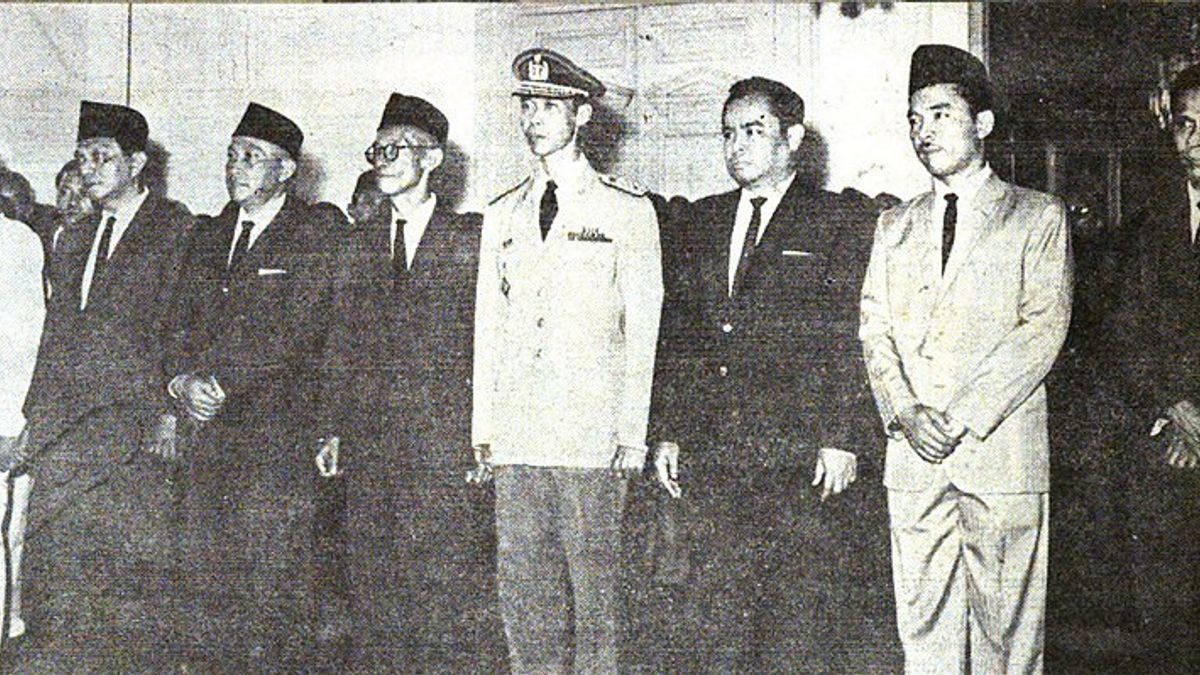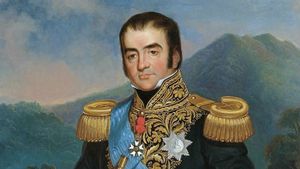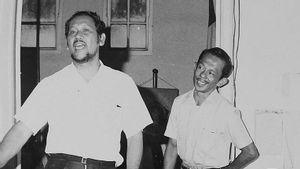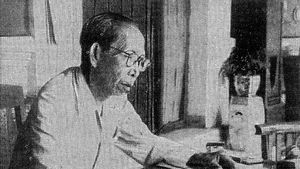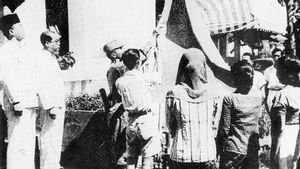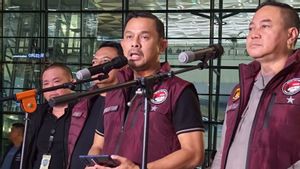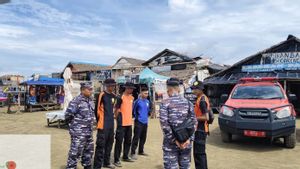JAKARTA Memories of today, 30 years ago, August 19, 1993, the former National Police Chief from the 1968-1971 era, Hoegeng Imam Santoso said he refused to be buried in the Kalibata Heroes Cemetery (TMP). The narrative was revealed because TMP Kalibata not only buried heroes but also corruptors.
Hoegeng's statement was quoted in the Justice Forum Magazine. Previously, General Hoegeng had no two anti-corruption lifestyles. He became a trustworthy official. Even he never took anything that was not his right during his tenure. From being a minister to the police chief.
Hoegeng's choice to carry out his dream job as a police officer is not easy. Temptation here and there always comes close to him. Moreover, the police in his time were often tempted by gifts and bribes. However, Hoegeng was not tempted at all.
He set high standards for his profession as a law enforcer. He never wanted to take things that were not his right. Even Hoegeng is not an easy person to bribe, let alone steering wheel. The act of horn made Hoegeng respected.
He can be placed anywhere. From intelligence duties to eradicating crime. All of them can be done well by Hoegeng. In fact, the officers who protect criminals often get unlucky are not playing when they meet Hoegeng.
Hoegeng's prestige was also famous. TNI General AH Nasution, who incidentally was the Coordinating Minister for Defense and Security (Menko Hankam), attracted. He made Hoegeng the Head of Immigration Office (now: Directorate General of Immigration).
The results were brilliant. All kinds of misappropriation were able to be dealt with by Hoegeng. Hoegeng was then promoted to the Old Order government to become a second minister: Minister of State Contributions and Minister/Secretary of Cabinet Presidium.
Honesty and an attitude that cannot be driven are the teachings of his glory. Then, during the New Order, Hoegeng was appointed as the National Police Chief in 1968. He solved many major cases. Even though some of them made the New Order government furious. Hoegeng's position as the number one person in the National Police ended in 1971.
"The attitude is open and not afraid of superiors if it is true, that's what Hoegeng held while on duty. But that's what also caused him to be removed from office. The head of the 1971 Police by President Suharto. The case of the shooting of ITB student Renemen did not fully satisfy his heart."
The case of Sum Kuning in Yogya involving the son of an official/bangsingwan Yogya and a son of a revolutionary hero was decided to be winding. Likewise with the case of smuggling luxury cars by Robby Tjahjadi. Hoegeng wants to act professionally, but this does not seem to please his superiors. Indeed, if we want law to be upright in this country, then the example must start from the President, "explained Historian Asvi Warm Adam in the book Revealing History Mystery (2010).
The spirit of honesty and the criticality of Hoegeng in upholding corruption in Indonesia has never been lost. He often perpetuated his criticism of the Police. Mainly, the luxurious lifestyle of police officers who are too poor.
Life like a New Rich Man (OKB). In fact, Hoegeng knows that the salaries received by police officers are not much. Hoegeng's hatred of corrupt officials never ends. This spirit made Hoegeng reluctant to be buried at the Kalibata TMP when he died.
SEE ALSO:
Hoegeng revealed that at TMP Kalibata it was not only inhabited by those who really contributed to the nation and state. Some of them are considered Hoegeng to be listed as corruptors. Hoegeng also refused to be in the same place as them. This view was revealed by Hoegeng in his interview with the Justice Forum Magazine which was published on August 19, 1993.
"I don't want to be buried in Kalibata. Anyway, I don't want to be buried in Kalibati. Wong, a corruptor has also entered there, really. Ah, he will reprimand me later. In fact, I want to rest. I want to be buried in Batu Tulis, Bogor. In a public cemetery, where one of my relatives has died," Hoegeng said as quoted by the Justice Forum Magazine, edition August 19, 1993.
The English, Chinese, Japanese, Arabic, and French versions are automatically generated by the AI. So there may still be inaccuracies in translating, please always see Indonesian as our main language. (system supported by DigitalSiber.id)
